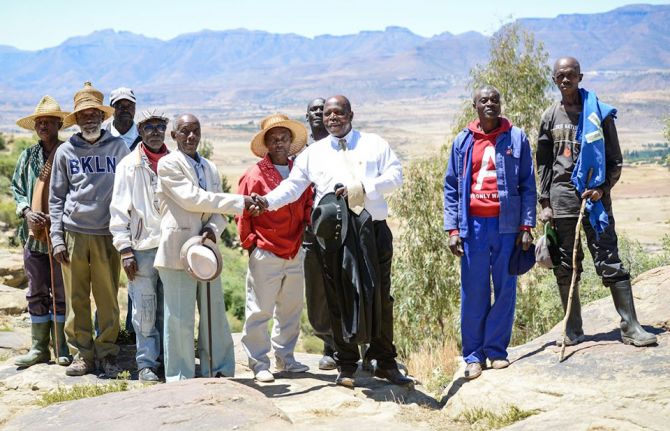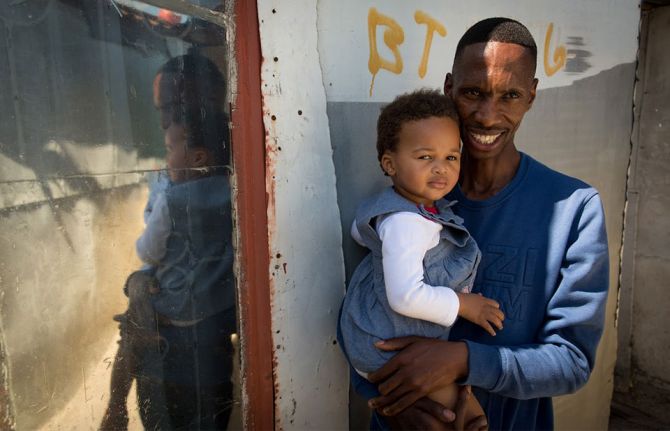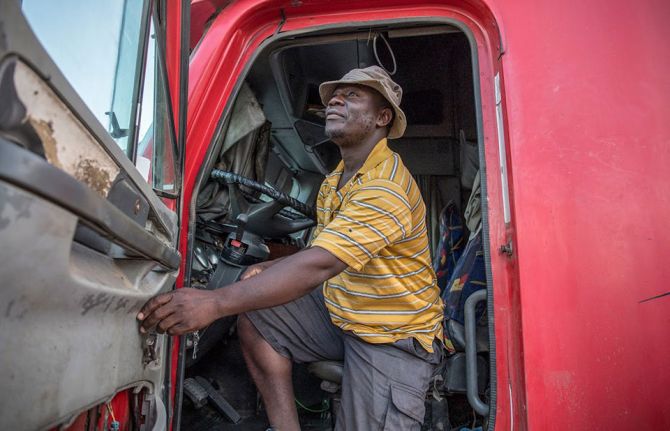



Feature Story
To end AIDS, communities mobilize to engage men and boys
04 December 2024
04 December 2024 04 December 2024Michael Onyango rises before dawn in his Nairobi apartment and catches a train eight hours east to Kilifi, a coastal town north of Mombasa. Resorts populate Kilifi’s sandy beaches and narrow wooden boats dot the water. Onyango heads inland to meet with the Kilifi County health management team, before dashing to an assembly of peer outreach workers from across the districts of Kaloleni, Malindi and Kilifi North.
Onyango runs the Movement of Men Against HIV in Kenya (MMAHK), spearheading a community-led monitoring initiative in the region to address the high numbers of men and boys who lack access to HIV services. In Kenya, only 65 percent of the men and boys over 15 years of age who are living with HIV are on antiretroviral therapy, compared to 80 percent of women and girls. The trend is mirrored globally: in 2024, the WHO and UNAIDS released data that men lagged on progress in achieving the 95-95-95 targets. Worldwide just 83 percent of men living with HIV know their status; 72 percent are on treatment and only 67 percent are virally suppressed.
MMAHK, in collaboration with the Masculinity Institute (MAIN), the International Network of Religious Leaders (INERELA+Kenya) and the UNAIDS Kenya country office, came together to tackle these service gaps in Kilifi County, which surrounds the town of the same name. The area, home to around 1.5 million residents, extends westward from the Indian Ocean and supports livelihoods through fisheries, factories, cashew nut mills, and farming.
In Kilifi, peer data collectors have identified that health facilities need to change their opening days and hours to accommodate the work and school day.
Community organizers are also working to challenge harmful prejudices that assert that men visiting a health facility or seeking an HIV test are “weak”.
As they rapidly roll-out peer support groups to challenge these beliefs, Onyango has had flashbacks to the pandemic’s earlier phases, when in the 1990s he worked as a counselor in a Nairobi hospital. HIV treatment was not yet available. “Many men I met who found out they were positive would resign from their jobs, go to their rural homes, sell their property, and wait to die,” Onyango said.
In 2001, Onyango and others started MMAHK to create a safe space for men to talk about their health needs. MMAHK also ran community testing, workplace outreach and targeted advocacy with religious and cultural leaders. As grassroots initiatives challenged harmful gender norms, Onyango saw social stigma and self-stigma among men decrease across Kenya. But the past few years have seen a resurgence of harmful norms around masculinity.
Onyango shares that the shift in funding away from many community initiatives, which were seen as harder to measure than biomedical interventions, has hampered community engagement efforts. Both are needed, he says. For example, although HIV treatment and voluntary male circumcision are now available in Kenya, cultural factors prevent some men from accessing these services.
A regional strategy developed in 2022 by UNAIDS, WHO, UN Women and partners –“Male Engagement in HIV Testing, Treatment and Prevention in East and Southern Africa” – outlines four key approaches: Improve access to health for men and boys and decrease vulnerability; prevent HIV among men and boys; diagnose more men and boys living with HIV; and increase the proportion of men and boys accessing and adhering to antiretroviral therapy.
“Tackling harmful masculinity also has a ripple effect,” reflects Lycias Zembe, a UNAIDS advisor in Geneva. “Harmful gender norms affect everyone, and changing these norms creates a better environment for women and girls and for men and boys.”
Community initiatives like MMAHK remain key. To challenge gender norms, MMAHK positions service access as courageous, and educates men that discussing emotions is a sign of strength. At 63, Onyango shows no signs of slowing down: “We’re going to keep addressing self-stigma and figure out how to help men access the services that they need to stay healthy,” he said. “We don’t have any other option.”



